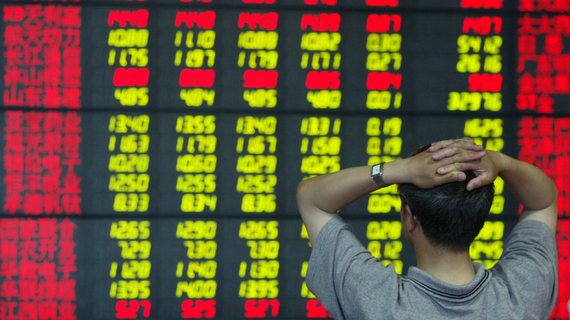There's a curious line that has to be toed when reporting economic or financial news. It exists in other fields that report news that can scare people--medical news, for instance. But in finance, keeping the peace attains a whole new significance.
People may worry when a disease claims lives, but that worry doesn't make the disease's effects stronger or multiply the victim count. Investor sentiment, on the other hand, can and does cause market shocks to ripple outward. Oftentimes it doesn't quite matter what actually happened or why it happened--all that matters is that enough people are convinced the lines on the charts are headed down.
The upshot of the interdependency of markets' health and investor perception is that bubbles happen. Free-flowing capital means people pile on to high performers until the bandwagon's too crowded, and it means people will jump off until the asset bottoms out.
Boom and bust growth is structural to the modern financial exchange. There's no series of rules or set of policies that unlocks one without bringing the other. But that won't stop China from trying to find the magic button after the bottom fell out of its financial exchange.
The Chinese stock boom was accomplished in a uniquely Chinese fashion: when the property bubble burst in 2013, the government slashed interest rates while encouraging people to invest. The gambit sought to reroute money being pulled out of real estate into the financial exchanges.
Because of the remarkable faith the Chinese government has curried domestically in these economically record-shattering decades, it worked. In a culture that believes deeply in both its government and in the cosmic forces of luck, the stock market fit beautifully. People took to it in droves, and the Shanghai Composite Index soared.
There were warning signs, of course. A majority of China's investors were private individuals, often quitting their jobs to trade. A market of private investors will be far more volatile, by definition, than a market of institutional investors, and much more prone to herd mentality. Margin trading--borrowing money to invest and return while pocketing profits--was a significant factor in the stock market's dizzying rise as well.
From a more macro perspective, Chinese debt hit $28 trillion in mid-2014. While that represents a manageable 282 percent of GDP, it handily outstrips the debt of the US or Germany. The staggering raw debt load set China up for problems should its economy slow down.
And in late June, the bubble began to burst. Stocks tumbled. Exports declined more than 8 percent from June to July. Auto sales were down 6 percent. GDP grew 7 percent in the second quarter of 2015, the slowest pace since the heart of the '08 crisis. The government acted.
It's common practice for struggling countries to devalue their currency, making domestic production artificially cheaper to begin a slow recovery. When China did it, it was billed as a one-shot backtracking on years of effort to liberalize the yuan. It hinted at deeper concerns about the economic slowdown.
But what policymakers in Beijing didn't have in the playbook is what happens to your flourishing financial exchange when you devalue your currency. By slashing the yuan to boost exports, the People's Bank triggered net outflows of liquidity. Investors began taking money off the table, and as sentiment piled up against the Shanghai Composite we were well on our way to a backlash.
That backlash came today, on Black Monday. The Shanghai Composite Index dove a staggering 8.5 percent to erase all its gains for 2015, and the volatility rippled through Asia. It hit the US as well, as the Dow ripped down 1,000 points at the opening bell before coming up to close down 588.
All that said, Black Monday shouldn't mark the start of another global crisis. The Chinese government still has options. It's flooding its liquidity-starved banks with cash, for instance, by cutting the required reserves-to-assets ratio. The fact that this has been made necessary as a direct consequence of the yuan devaluation encapsulates China's problems pretty neatly.
More hearteningly, China's insistence on manual control of its currency means it's not nearly as integrated in the global market as the American banks peddling mortgage-backed securities were in 2008.
In early Tuesday trading, most Asian indices (except Shanghai) regained even footing. The China contagion shouldn't trigger a bear market, much less the apocalypse.
The real lesson here is twofold: first, that China is going to do things China's way. When stocks first started tumbling, the government got creative. It suspended IPOs, forbade majority shareholders from selling, ordered employees to buy shares in their own companies. None of it worked, but that's not the point--the point is that China will throw the kitchen sink at this, to unpredictable results.
The second one is simpler. For the last several decades, the world has relied on China to be its only real engine for growth--the guaranteed plus performer, trade partner, and hungry market year in and year out.
But with its economic slowdown, massive debt load, and investor faith being shaken, this might no longer be a role that China is willing, or able, to play.
